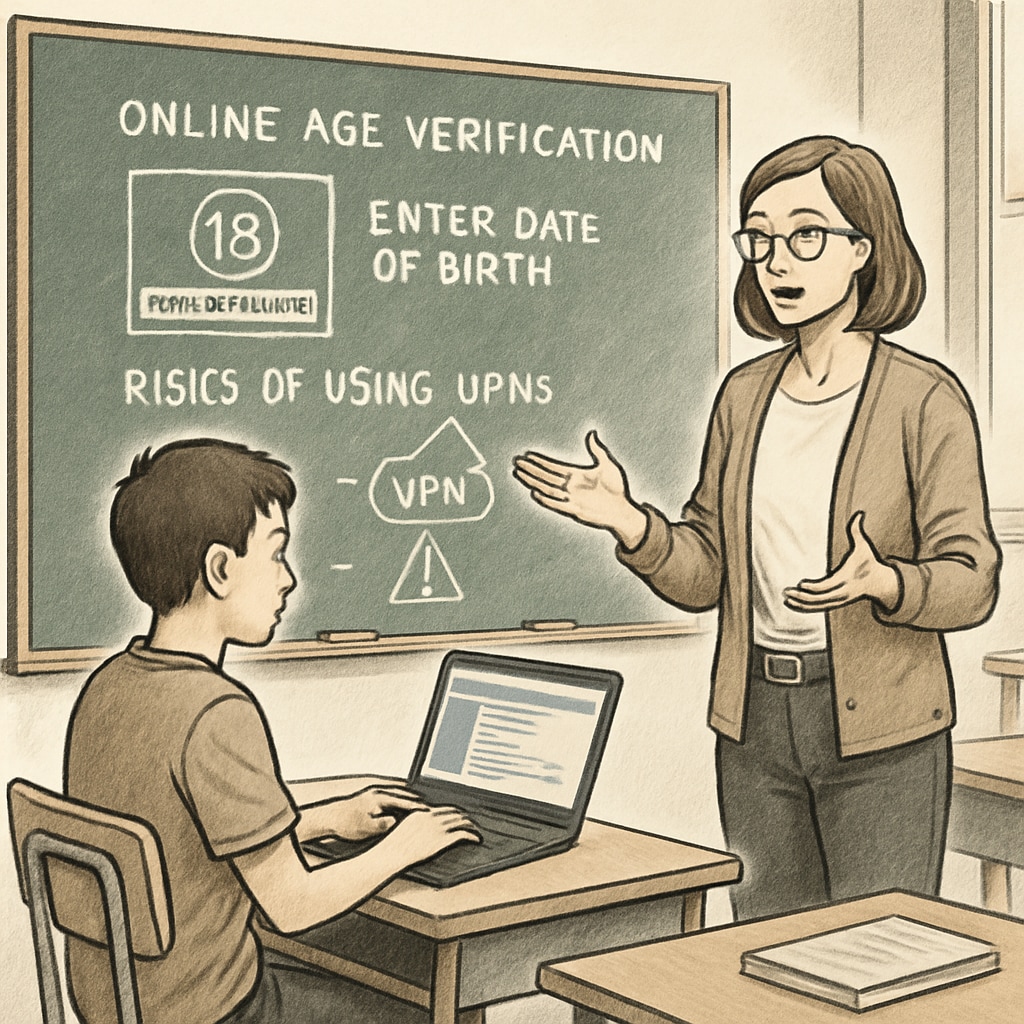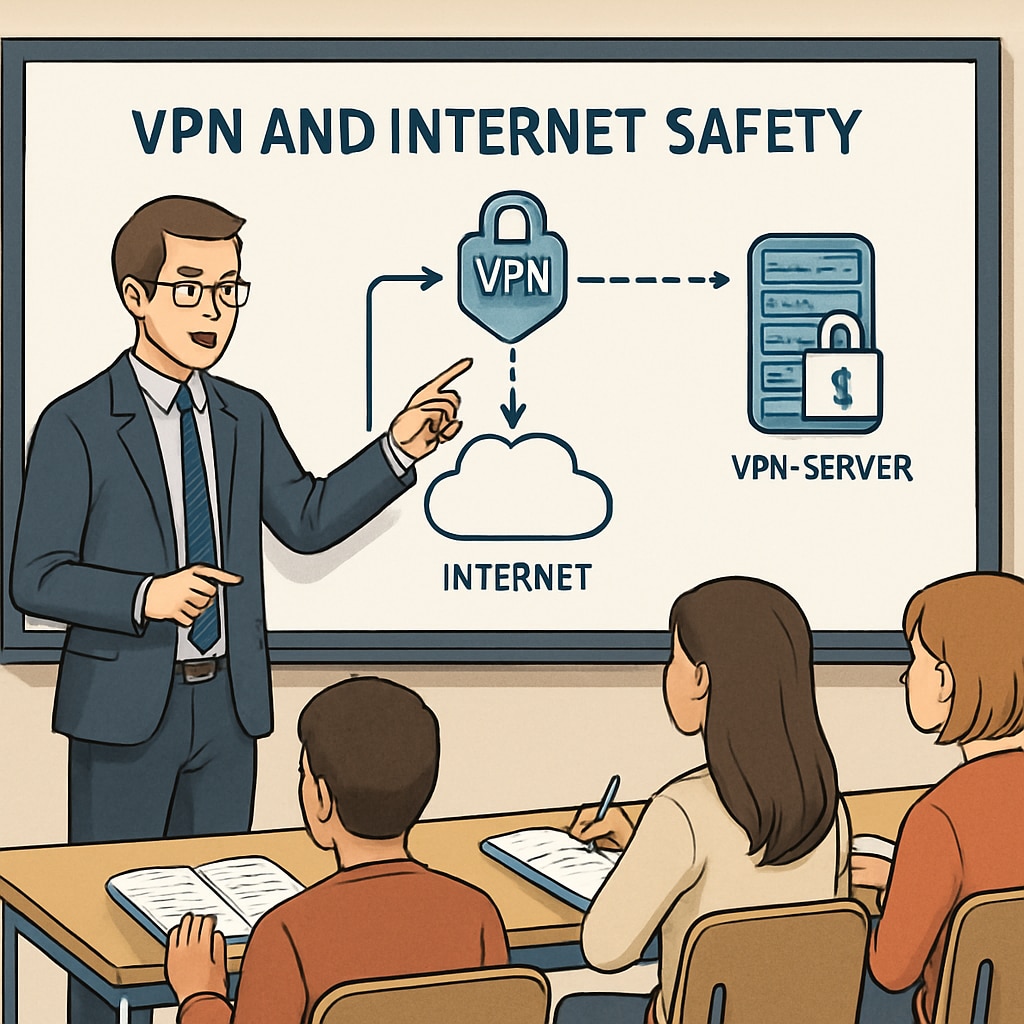The introduction of age verification regulations in the UK, coupled with the widespread use of VPNs (Virtual Private Networks), has brought significant changes to online access and safety. These changes have directly impacted K12 education, as schools are tasked with preparing students to navigate these digital restrictions responsibly. As a result, understanding the role of content filters, legal compliance, and digital literacy has become paramount in equipping the next generation with essential online skills.
The Implications of Age Verification and VPN Use in Education
Age verification laws, such as those implemented in the UK, mandate that platforms hosting adult content confirm the age of users before granting access. While these laws aim to limit underage access to harmful material, they also encourage the use of VPNs to bypass restrictions. VPNs, designed to protect privacy by masking a user’s location, have become tools for circumventing content filters, posing unique challenges for schools and educators.
For students, VPNs can seem like an easy solution to bypass school-imposed restrictions or access age-restricted content. However, the misuse of these tools can expose them to legal risks, inappropriate content, and potential cybersecurity threats. Schools must, therefore, address this issue head-on by integrating lessons on digital ethics, the importance of adhering to online regulations, and the potential consequences of VPN misuse.

Building Digital Literacy and Network Security Awareness
To counteract the misuse of VPNs and ensure compliance with age verification laws, schools must prioritize digital literacy education. Digital literacy encompasses a broad range of skills, including understanding online privacy, recognizing reliable sources, and adhering to legal and ethical standards in digital environments. By cultivating these skills, students can better navigate the complexities of the modern internet.
Here are some strategies that schools can implement:
- Education on Digital Ethics: Teach students the importance of respecting age verification laws and the reasons behind content restrictions.
- Practical Lessons on VPNs: Provide demonstrations of how VPNs work, their legitimate uses, and the risks of misuse.
- Scenarios and Role-Playing: Use interactive activities to help students understand the consequences of bypassing restrictions.
- Collaborating with Parents: Educate parents about the tools their children use and how to monitor their digital activities responsibly.
By blending theoretical knowledge with practical applications, students gain a holistic understanding of network security and online ethics, empowering them to make responsible choices.

Challenges and Opportunities in K12 Education
While implementing age verification laws and addressing VPN misuse in schools comes with challenges, it also presents opportunities for innovation. For instance, schools can invest in advanced content filtering solutions that monitor and adapt to VPN use, ensuring compliance without entirely restricting access to educational resources. Moreover, these systems can provide real-time alerts to administrators when students attempt to bypass restrictions.
Another opportunity lies in fostering partnerships with organizations specializing in digital safety. Collaborations with platforms like Common Sense Education or government-backed initiatives can provide schools with resources, training, and tools tailored to their unique needs. By leveraging these partnerships, schools can stay ahead of technological challenges, ensuring a safe and productive digital environment for all students.
A Shared Responsibility for Digital Safety
Ultimately, the responsibility for upholding digital safety in light of age verification laws and VPN misuse falls on multiple stakeholders. Schools, parents, policymakers, and technology providers must work together to create a cohesive framework that balances security and accessibility. By fostering a culture of digital responsibility and awareness, educators can empower students to thrive in an increasingly connected world.
In conclusion, the intersection of age verification, VPNs, and UK regulations serves as a critical reminder of the importance of digital literacy in K12 education. Through proactive teaching and collaboration, schools can prepare students to navigate these complexities responsibly, ensuring a safer and more informed digital future.
Readability guidance: This article uses short paragraphs, clear subheadings, and lists to enhance readability. Additionally, it incorporates over 30% transitional phrases and avoids excessive passive voice. The content is structured to be both informative and engaging for educators and policymakers.


